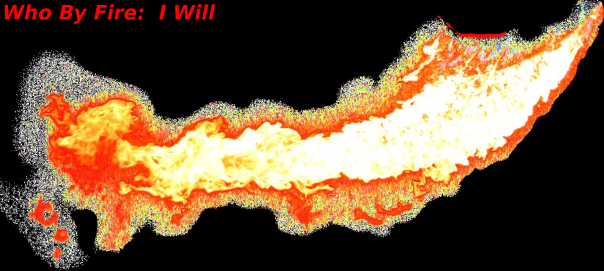I cannot express my gratitude enough to the public library system, especially the DCPL, where I borrowed dozens of books on a host of topics related to this WiP.
Of course I also found much information online, a great deal of that being contradictory or not useful for me, so I took copious notes, and then managed to lose half of them when my phone died.
Note to self, do not use text messages to send yourself notes as you read a book.

But, at last, this novel in progress, Who By Fire, finally seems to be coming together, but it has been everlastingly tiring.

So, the individual characters have their own life stories, of course, most of which, I now see, I need to understand and know like the back of my hand before I start to write. Those stories tie into the theme of the book as the plot uses some universal story idea to step on their wounds, thus saying something about the world in general. I finally understand that this is not something one must or even should write in a scene somewhere, but rather, it is something that the story itself says, once the reader is done reading it. And that sums up three years or more of studying story theory. Go to, go write, Fellow Writers!
Shira
Action Prompts:
1.) Share your thoughts on writing, and on story, please.
2.) Write a story, post or comment that uses those thoughts.
*****************
Click on the ShiraDest site menu above this post, out in your browser (I personally also advise loading an ad blocker extension to your browser, first…), for menu pages leading to posts on learning via book and film reviews, and some wonderful shows as well, and free lesson plans, and my writing in various forms, if you have time to read, and if you like:
B5, Hakan: Muhafiz/The Protector, Sihirli Annem, Lupin, or La Casa de Papel/Money Heist Reviews,
or,
Holistic College Algebra & GED/High School Lesson Plans,
or,
Long Range Nonfiction, or Historical Fiction Writing (including Who By Fire, as I draft it, and Ann & Anna…).
Also,
Thoughtful Readers, please consider reading about #ProjectDoBetter. This free learning tool set work is my personal way (as opposed to founding the Project, overall) of contributing to building tools that can help increase empathy and compassion in our world. And remember how important empathy building is, as part of this project. Let’s Do Better.
Shira Destinie A. Jones, MPhil, MAT, BSCS
ShiraDest Publications and Shira Destinie Jones’ work, in this blog post, is licensed under a Creative Commons Attribution-NonCommercial-ShareAlike 4.0 International License.



 and state laws surrounding debt collections. We can all help by sharing information freely with our neighbors.
and state laws surrounding debt collections. We can all help by sharing information freely with our neighbors.

 (As Project Do Better works to help accomplish…)
(As Project Do Better works to help accomplish…)









